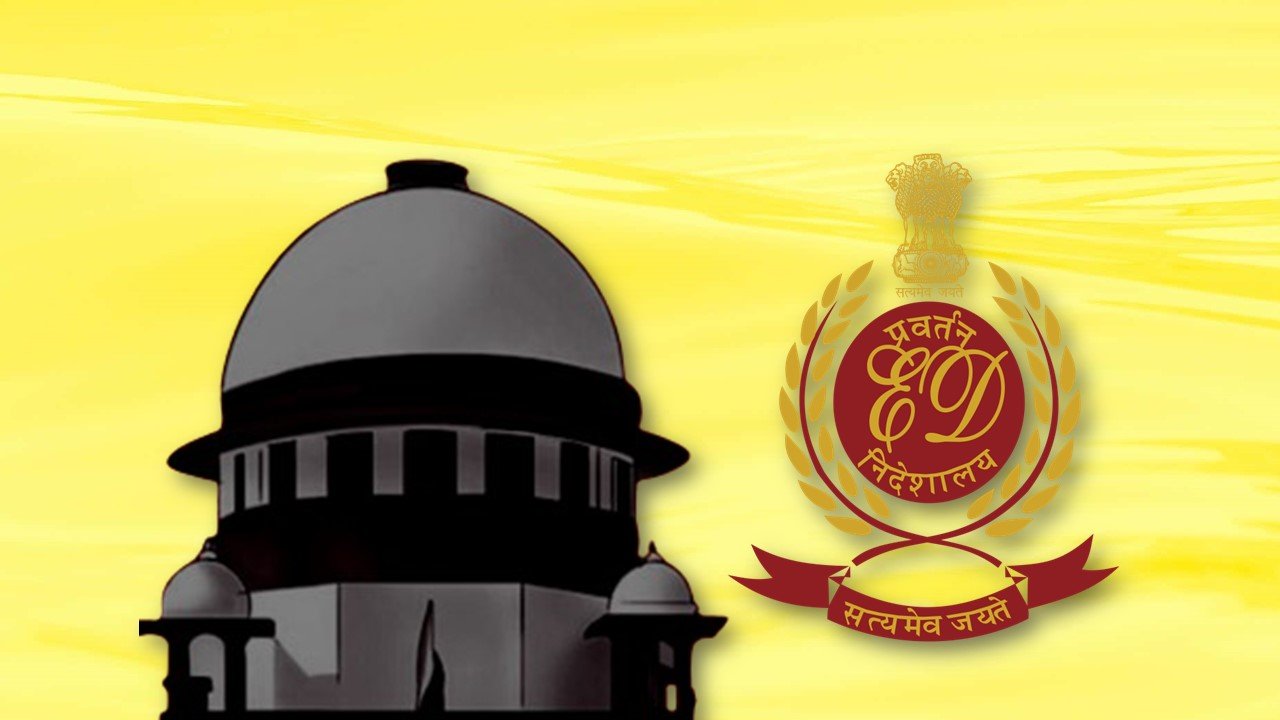The Supreme Court on May 22 sharply criticized the Enforcement Directorate’s (ED) probe into the Tamil Nadu State Marketing Corporation (TASMAC), halting ongoing investigations and raids. The court expressed concern that the central agency was overstepping constitutional boundaries and undermining India’s federal structure.
Chief Justice of India (CJI) BR Gavai, who presided over the bench alongside Justice AG Masih, remarked pointedly to Additional Solicitor General SV Raju, “Your ED is crossing all limits. How can there be an offence against the corporation?” Gavai reiterated, “You are totally violating the federal structure of the country.”
The order came in response to Tamil Nadu’s plea challenging the Madras High Court’s dismissal of objections to ED raids. Senior advocate Kapil Sibal, representing the State, argued that the ED’s actions were intrusive and without jurisdiction, especially since Tamil Nadu had already registered 41 FIRs against individuals for liquor-related corruption between 2014 and 2021.
Federalism at the Crossroads
The case has snowballed into a constitutional flashpoint. While the state government contends that the ED is conducting a “roving and fishing inquiry” without proper grounds, the central agency argues its probe stems from a ₹1,000 crore liquor scam, including allegations of bribery, inflated liquor prices, and unaccounted cash.
“This is a corporation giving liquor outlets. The FIRs are against individuals. How can ED raid the corporation and seize all devices?” Sibal asked, claiming that all phones and devices of TASMAC staff were cloned by ED without clarity on scheduled offences.
Senior advocate Mukul Rohatgi, appearing for TASMAC, added that the privacy of public officials was breached. “This is an issue of privacy,” he said, urging the Court to restrain the ED from using data acquired in the raids.
The bench has stayed further proceedings “qua the petitioners,” and issued a notice to the ED to file a response.
Liquor Scam, Political Storm
The controversy stems from a broader ₹1,000 crore liquor scam involving distilleries in Tamil Nadu allegedly siphoning off funds and bribing officials to secure TASMAC supply orders. While TASMAC’s outlets were accused of overpricing liquor, ED’s March raids intensified scrutiny.
Opposition parties claim the ED’s sudden action in 2025 is timed to discredit the ruling party before Tamil Nadu elections. The state has accused the Centre of using the ED to harass regional governments, a charge echoed by several non-BJP ruled states in recent months.
The High Court had previously dismissed the plea against ED, stating that officers could be detained during raids to prevent evidence tampering. But the Supreme Court’s intervention now signals a more cautious judicial stance.
As the matter awaits further hearing, the judgment may well determine how far the Centre can go in using federal agencies against state institutions—a test for India’s constitutional checks and balances.


